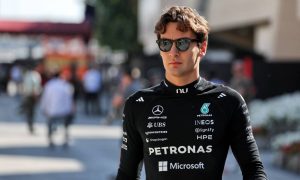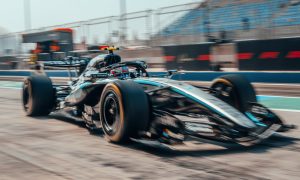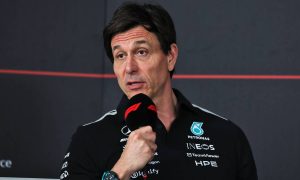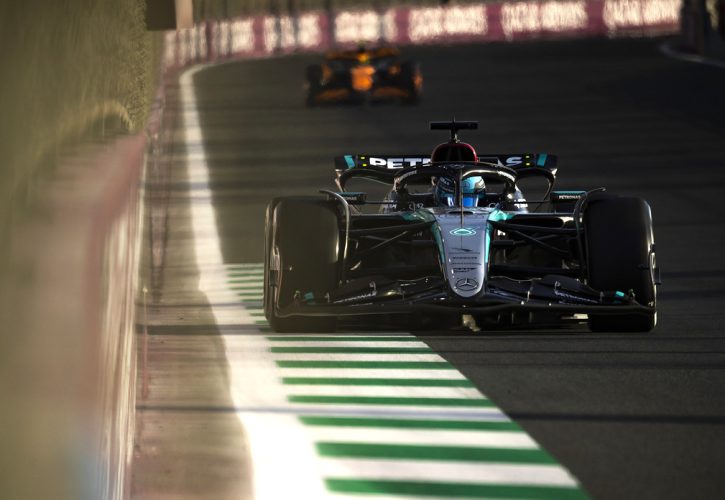
Mercedes F1 boss Toto fears that the deficit suffered by the team’s W15 car last weekend in Saudi Arabia is rooted in a “fundamental” issue hiding under the silver arrows’ skin.
George Russell and Lewis Hamilton qualified respectively P7 and P8 in Jeddah, well adrift from Red Bull poleman Max Verstappen.
The Mercedes pair then finished sixth and ninth in Saturday’s race but once again well adrift from a podium finish.
Hamilton’s main gripe on race day was his car’s lack of stability in Jeddah’s high-speed corners and especially through the venue’s first sector.
The Briton's frustrations were such that he felt he was racing "in a different category" compared to his rivals. And data analysis revealed that Mercedes' W15 was the second slowest car through Jeddah's sector 1
Mercedes had attempted to mitigate the issue by reverting to a higher downforce rear wing after Thursday’s opening day of running in Saudi Arabia. But improvements were hard to come by.
“I think there is a bigger factor with a lack of high speed than just the rear wing,” Wolff explained.
“We are missing downforce beyond the steps that you would have with a bigger rear wing. We tried that with Lewis and there is something that we don’t understand, because we are quick everywhere else pretty much and we know that we have a smaller rear wing.
“We are compensating what we are losing through the corners, but it’s just the high speed where we are losing all the lap time.”

©Mercedes
Wolff doubted that the W15’s negative trait can be solved in the short term by working on the car’s set-up.
“I think that’s a biggie. There is only so much you can tune here,” he said.
“Our simulation points us in a direction and this [is] the setup range that we then choose, you put the right rear wing on and I think you gain a few tenths if you get the set-up right or wrong.
“But it is not a massive corridor of performance. It’s more a fundamental thing that we believe the speed should be there, we measure the downforce, but we don’t find it on the lap time.
“I think we had so much unknowns in the past year, where we thought this could be a reason and this could be a reason and this could be a reason, and we fixed that,” he added.
“We can see from the sensors that we have what we needed.
“But there is still this behaviour of the car in a certain speed range that our sensors and simulations say this is where we should have the downforce and we are not having it.”
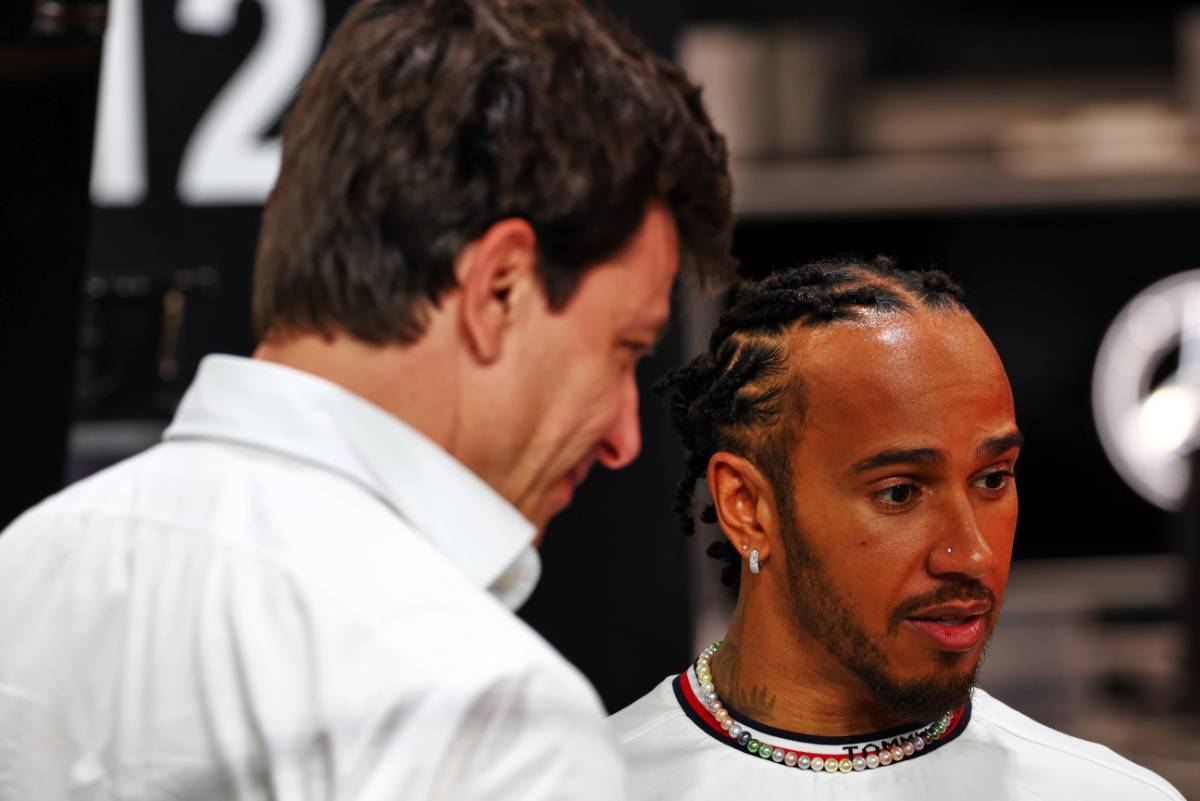
Alluding to Mercedes’ porposing issues rearing their ugly head once again on its W15 design although on a less intense level that in the past, Wolff admitted that the Brackley squad’s engineers are still digging deep to try and unlock the “fundamental” cause of the phenomenon.
“So, the thing is that it’s been two and a half years that we are chasing this fundamental … it’s been two years that there is something that we need to spot, and that’s the thing to unlock,” Wolff said in relation to the porpoising phenomenon.
“It is not by lack of trying, we have pushed so hard and we have got to give it a massive, massive go now in the next week with more data to understand and come back to Melbourne stronger.
“We are on a mission on this one and I am 100 per cent sure we are going to unlock that performance gap.”
Keep up to date with all the F1 news via Facebook and Twitter




